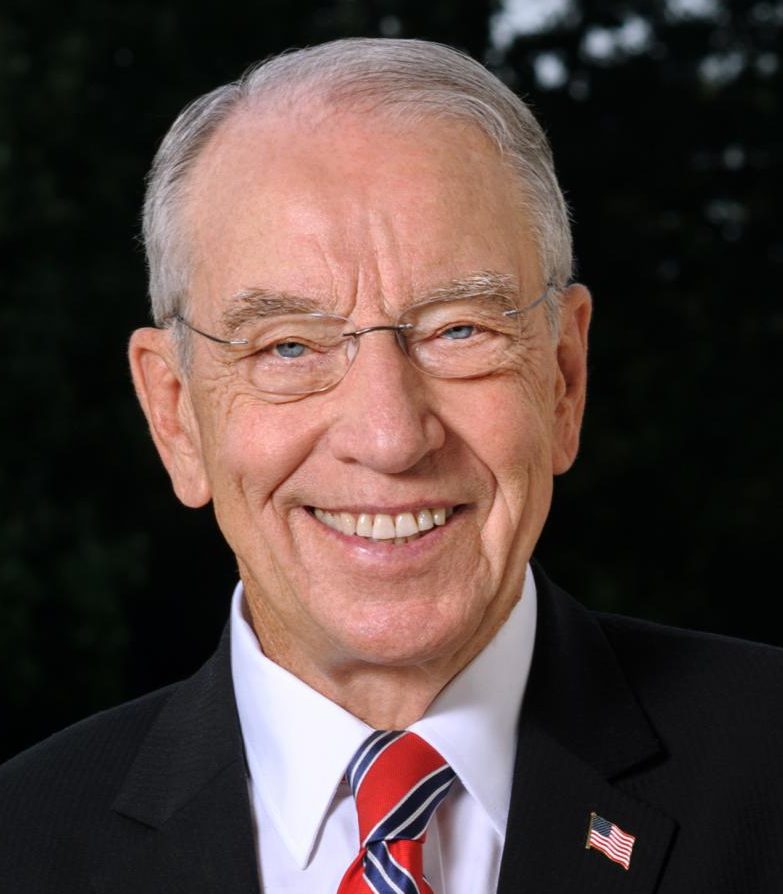Q: Why did you invite the Biden administration’s climate advisor to Iowa?
A: When President Biden took office, I reassured Iowans I’ve been able to work with every president throughout my years representing Iowa. When an administration’s agenda is good for Iowa, I’m all in to help put the policies into place. I’ve worked with previous administrations to pass welfare reform, job-creating tax cuts and Medicare prescription drug benefits for seniors. I’m working now to keep sustainable, renewable energy on that list during the Biden administration. If an administration’s proposals would do harm to the rural economy, such as Obama-era regulations known as Waters of the United States, I push back and work hard for better solutions. When I learned the Biden administration’s climate advisor, Gina McCarthy, may not understand how seriously Middle America takes environmental stewardship and sustainable energy, I extended an invitation for her to return to Iowa and discover the recent strides Iowa’s renewable energy industry has taken since her last visit in 2009. Continuing this dialogue should help clear the air regarding recent remarks she made about my neck of the woods. She said, “We have to get the middle of the country understanding and active on climate. We need to show them what resilience looks like.” First, Iowans know a thing or two about resilience. And beyond that, Iowa farmers, suburban families and urban workers care as much about clean air and clean water as coastal Americans. For nearly three decades, Iowa has developed a reliable home-grown, renewable, clean energy infrastructure. Our biofuels industry employs 43,000 workers, creates tens of thousands of jobs along the supply chain and adds economic vitality in communities across the state. Beyond adding value to Iowa agriculture and lowering energy bills for consumers, Iowa-grown energy is sustainable, renewable and good for energy independence. According to a recent study by scientists from Harvard University, Tufts University, and Environmental Health & Engineering Inc., using corn ethanol in place of gasoline reduces greenhouse gas emissions by almost half with some corn ethanol in the market today achieving a 61% reduction. Corn ethanol’s higher octane, lower carbon biofuel drives down emissions and displaces harmful fuel additives bad for public health. What’s more, Iowa’s wind energy leads the nation with the highest wind power share, generating more electricity in 2019 than the state’s coal-fired plants for the first time.
As the “father” of the Wind Energy Incentives Act of 1993, I sought to give this alternative energy source the ability to compete against fossil fuel energy sources. Since then, Iowa’s low-cost, dependable, and renewable energy grid has attracted companies like Google, Facebook, Microsoft, and others to invest heavily in the facilities in our state to meet their clean energy commitments.
Q: Why are people blaming wind energy for the recent power outages in Texas?
A: When millions of Texans were left in the dark and without power during February’s frigid cold snap, wind energy became a political scapegoat for other failures. Mother Nature decides when the wind blows and the sun shines. But the responsibility rests on the shoulders of policymakers to ensure the power grid operates effectively. When innovators and engineers harness wind, solar, nuclear or fossil fuels to generate electricity, the architecture for storage and distribution must be reliable and diversified, including weather-resistant. Texas has a particularly isolated energy grid that is designed to handle large loads in the heat of summer. Wind energy works in winter too, but unlike Iowa’s energy producers, Texas energy infrastructure was not prepared for severe weather. The blackout in Texas serves up a cautionary tale for political leaders. Americans depend on reliable, affordable, sustainable sources of energy to survive. And the U.S. economy depends on reliable, affordable, sustainable energy to thrive. U.S. energy security ought to be a nonpartisan issue. As an outspoken champion for Rural America, my crusade for alternative energy, such as Iowa-grown wind energy and biofuels is not a secret. However, I’m also an outspoken advocate for an all-of-the-above energy strategy. Vilifying wind energy is wrong. Putting all of our energy eggs into one Green New Deal basket is wrong, too. There’s no magic wand that would create a fossil-free energy utopia. Even that fairy tale wouldn’t have a happy ending. Consider the lost jobs and wages when Biden cancelled the Keystone XL pipeline. Strengthening U.S. energy security requires an “all-of-the-above” commitment to renewable, alternative and traditional sources of energy. Affordable, dependable energy is vital to U.S. economic, food and national security. Clean, sustainable energy is important to protect our natural resources for generations to come. America needs all of the above, not either/or. As Iowa’s senior U.S. Senator, I’m working as hard as ever on energy policy to make the world a better place for our children and grandchildren.
















